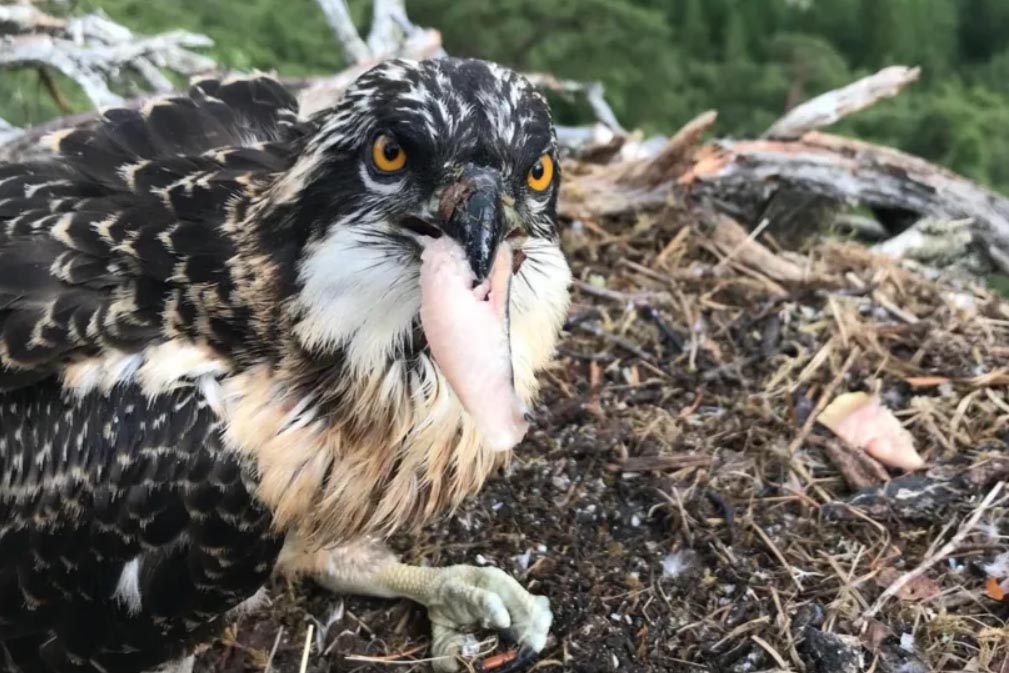Scottish Osprey chicks relocated to Spain
Two Osprey chicks have been relocated from Scotland to Spain following concerns over the adult male's hunting performances.
The youngsters at Loch Arkaig, in the Scottish Highlands, were struggling for food following reduced fish catches by their parent, nicknamed 'Louis', in recent weeks.
Woodland Trust Scotland believes the male may be ill or suffering age-related effects.

The two Osprey chicks have been relocated to western Spain where they will form part of a reintroduction programme (Woodland Trust Scotland).
Spanish relocation
The six-week-old birds will now be relocated from the forest, near Lochaber, to the Valencian Community in Spain as part of a reintroduction programme.
Woodland Trust spokesperson, George Anderson, said Louis had been "off his game" in recent weeks, bringing in very few fish to feed the chicks.
Mr Anderson said the bird would normally be bringing catches of four or five every day.
Hungry chicks
The trust said it would never interfere with the Ospreys' daily lives in normal circumstances. But Mr Anderson said it would be "needless" to let the chicks die from starvation when a relocation option was available.
He said: "Louis has always been a very dependable provider, but he has been off his game lately. Bad weather is likely part of the problem and lots of nests appear to have had a poor year, but we think there is something not right about Louis.
"We waited to see if Louis' performance would pick up but it hasn't and, while it is our default position not to intervene, we think it would be needlessly dogmatic to let the chicks die when the option to relocate them is available."
Ospreys return
Louis and his female mate hatched three chicks earlier this year, two of which survived.
The trust is now working with the Roy Dennis Wildlife Foundation as part of a project to introduce the birds to eastern Spain. The project is based in the Pego-Oliva Marsh NP, near the town of Playa Santa Ana.
It is hoped the scheme, which is in its second of five years, can help restore the species to the region – where Osprey became extinct in the 1980s.
Survival chances
Mr Anderson said: "We have every confidence that while the chicks' survival is not guaranteed, they will have a vastly better chance.
"It will take the pressure off the adult birds, who will now only need to feed themselves and can hopefully get back in condition before migration and will contribute to an excellent conservation initiative expanding the range of the species to make it more resilient in the future."

